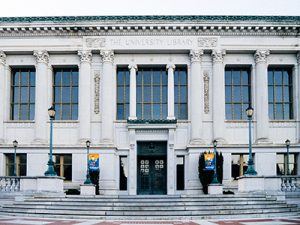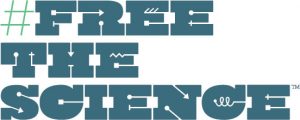 The Electrochemical Society (ECS) will celebrate its third annual Free the Science Week (April 1-7, 2019) by once again taking down the paywall to its entire online collection of published research. For the duration of the week, the ECS Digital Library, which contains over 151,000 scientific articles and abstracts, will be freely accessible to everyone.
The Electrochemical Society (ECS) will celebrate its third annual Free the Science Week (April 1-7, 2019) by once again taking down the paywall to its entire online collection of published research. For the duration of the week, the ECS Digital Library, which contains over 151,000 scientific articles and abstracts, will be freely accessible to everyone.
The urgency for open access publishing has been felt for some time. The strain of paywalls and expensive scholarly publishing business models have limited access to academic papers and research, causing some to take matters into their own hands.
The Electrochemical Society is one of those to take action. Each year, ECS participates in International Open Access Week by taking down paywalls to the entire ECS Digital Library, giving the world a preview of what complete open access to peer-reviewed scientific research will look like. ECS is also the founder of the Free the Science initiative, which aims to make the Society’s high quality, peer-reviewed research free for everyone to read and free for authors to publish. In addition, in honor of Free the Science, the Society also offers another paywall-free week to the ECS Digital Library. This year marking the Society’s 3rd annual Free the Science Week, taking place April 1-7, where thousands of scientific articles and abstracts will become free to access.
And, it looks like ECS is far from alone in these efforts. (more…)
ECS’s Free the Science Sets Example as Plan S Talks Continue
Posted on February 14, 2019 by Jennifer Quartararo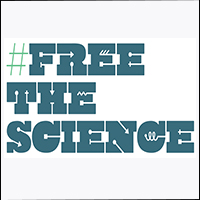 Since The Electrochemical Society’s inception in 1902, the Society has stood for the advancement of electrochemical and solid state science and technology. As part of this mission, ECS is working to Free the Science by making all content from ECS journals free and fully accessible to the public: an initiative that is gaining traction and attention in the scholarly publishing community.
Since The Electrochemical Society’s inception in 1902, the Society has stood for the advancement of electrochemical and solid state science and technology. As part of this mission, ECS is working to Free the Science by making all content from ECS journals free and fully accessible to the public: an initiative that is gaining traction and attention in the scholarly publishing community.
UCL’s Town Hall meeting on Plan S
On January 8, the University College London (UCL) held a town hall meeting to discuss the principles of Plan S, a plan that supports open access initiatives like Free the Science, which aims to make all research funded by public grants provided by cOAlition S funders openly available by 2020.
The plan has since received some backlash and concerns from the academic and scholarly publishing communities, including UCL, the host of the Plan S discussion. (more…)
 Since 2018, all the members of the German consortium of The Electrochemical Society led by the Technische Informationsbibliothek (TIB) – German National Library of Science and Technology have benefited from a special publishing option: ECS grants all institutions participating in its program an unlimited number of article processing charge (APC) credits. This allows all scientists affiliated with participating institutions to publish open access articles in ECS journals free of charge. (more…)
Since 2018, all the members of the German consortium of The Electrochemical Society led by the Technische Informationsbibliothek (TIB) – German National Library of Science and Technology have benefited from a special publishing option: ECS grants all institutions participating in its program an unlimited number of article processing charge (APC) credits. This allows all scientists affiliated with participating institutions to publish open access articles in ECS journals free of charge. (more…)
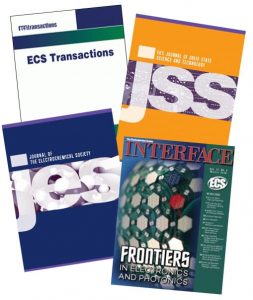 To usher in the new year, ECS is highlighting the articles from the Journal of The Electrochemical Society, the ECS Journal of Solid State Science and Technology, ECS Transactions, and Interface that received the most full-text downloads in 2018.
To usher in the new year, ECS is highlighting the articles from the Journal of The Electrochemical Society, the ECS Journal of Solid State Science and Technology, ECS Transactions, and Interface that received the most full-text downloads in 2018.
Please enjoy the articles below, and stay connected with ECS through 2019 for access to more innovative and influential research at the forefront of electrochemical and solid state science and technology.
All of the articles in the following roundup are open access/free to read.
Learn about ECS’s Free the Science initiative.
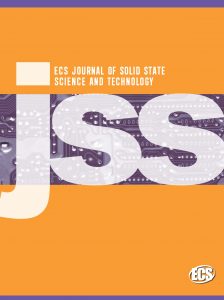 To recognize the innovative research gaining attention across the diverse span of its topical interest areas, the Society highlights the top five most-downloaded journal articles in each TIA during each quarter of the year.
To recognize the innovative research gaining attention across the diverse span of its topical interest areas, the Society highlights the top five most-downloaded journal articles in each TIA during each quarter of the year.
The most-downloaded ECS Journal of Solid State Science and Technology articles by TIA during the fourth quarter of 2018 (October through December) are listed below.
Highlights are based on articles published since January 1, 2016.
Articles marked OA are open access.
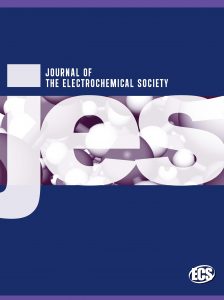 To recognize the innovative research gaining attention across the diverse span of its topical interest areas, the Society highlights the top five most-downloaded journal articles in each TIA during each quarter of the year.
To recognize the innovative research gaining attention across the diverse span of its topical interest areas, the Society highlights the top five most-downloaded journal articles in each TIA during each quarter of the year.
The most-downloaded Journal of The Electrochemical Society articles by TIA during the fourth quarter of 2018 (October through December) are listed below.
Highlights are based on articles published since January 1, 2016.
ALL of the articles listed below are open access.
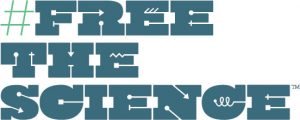 When ECS launched the Free the Science initiative, the Society made a commitment to constructive, industry-wide disruption based on a simple tenet—research should be free for authors to publish and free for readers to access.
When ECS launched the Free the Science initiative, the Society made a commitment to constructive, industry-wide disruption based on a simple tenet—research should be free for authors to publish and free for readers to access.
Already the initiative has had momentous impact.
Since ECS began offering open access as a publishing option in 2014, over 35% of its journal articles have been published open access. Over 90% of those articles were published at no cost to authors, thanks to the over $2.1 million in article processing charge credits the Society provided.

Plan S, created in a move to crack down on scholarly journals’ paywalls, is receiving pushback from scientists who call the plan “too risky for science.” According to Science Magazine, the scientists put their feelings into writing in an open letter backed by 800 signatories who say they support OA—which would make papers free and available to all—but not like this. (more…)
With top academic publishers like Elsevier holding a 35-40% profit margin and for-profit academic publishers earning $25.2 billion a year, Jason Schmitt began to wonder about the consequences of paywalls on access to scientific research. His questions led to his October 2018 documentary film, Paywall: The Business of Scholarship, where he questioned publishing practices and the public’s limited access to information.
According to IMDb, while filming, Schmitt says he was struck by the global energy and enthusiasm toward open access and the strong resistance to the movement by many of the world’s top publishers. “Further, I found that the funds paid to academic publishers are heavily burdening the higher education market, contributing to the rising tuition fees at all universities, the closure of many institutions and, ultimately, limiting science and progress.” (more…)


